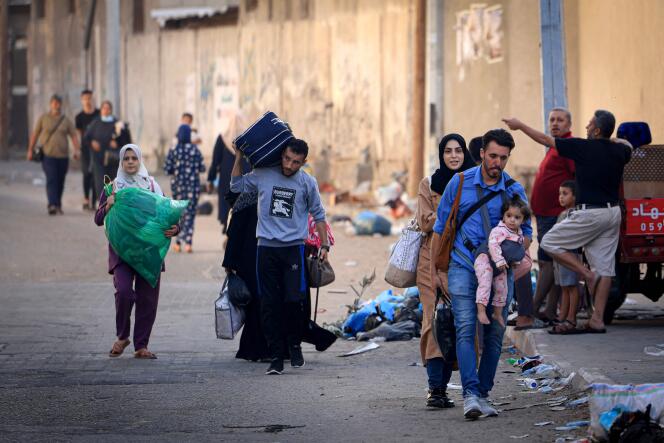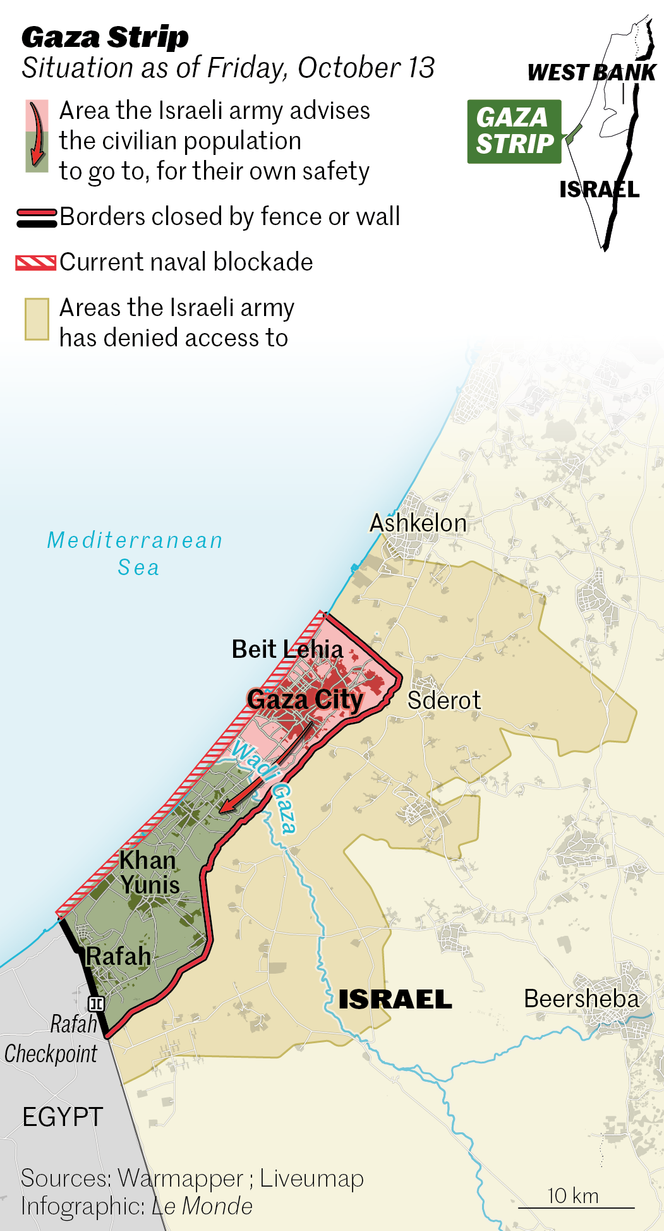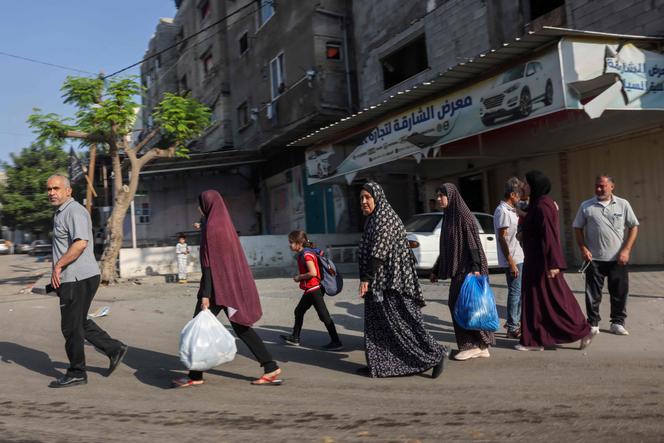


In the early hours of Friday, October 13, kept awake by a night of intensive strikes, the inhabitants of the Gaza Strip shared news updates one message after another, incredulous and terrified: The Israeli army had just demanded the evacuation of the northern part of the enclave. Confused, some were scrambling to figure out where to go, while others were calling their loved ones to say goodbye.

No one was ready, and many doubted the contradictory information reaching them. "We've been asked to head south. We're all dressed, we've packed bags and our belongings, and if necessary we're ready to go out during the day. God, please let us live," said a worried Dina Ajrami, who lives in the center of the Gaza Strip. A resident of the same area, Amina Bukhari, was afraid she'd misunderstood: "Where can we go? There are bombings everywhere, there's no way to leave now. The noises are terrifying. I'm a nervous wreck, horrified."
The Israeli army demanded this morning "the evacuation of all civilians in Gaza City from their homes" to an area south of Wadi Gaza, in the center of the Palestinian enclave under a complete Israeli blockade. It gave residents 24 hours to move. "This evacuation is for your own safety," reads the army statement. "You will be able to return to Gaza City only when another announcement permitting it is made." Hamas authorities in Gaza immediately denounced "false propaganda." The Hamas Authority for Refugee Affairs told residents to "remain steadfast in your homes and to stand firm in the face of this disgusting psychological war waged by the occupation," it said.
Since the Hamas attack on October 7, when its fighters infiltrated Israeli territory and killed 1,300 Israelis, the Jewish state has been bombing the Gaza Strip, which is under the control of the Islamist movement, with unprecedented intensity. More than 1,500 Gazans have been killed, according to an initial provisional toll. No part of this thin strip of land (365 km2) has been spared by the bombardments. Bombs are dropped on civilian homes in densely populated areas, most of the time without warning. In recent days, schools, universities, ambulances and rescue workers have been targeted by the strikes in the enclave, which has no shelters. On Friday morning, the armed wing of Hamas claimed that "13 hostages, including foreigners," had been killed in Israeli strikes over the past 24 hours.

Given the severity of the Israeli raids, local residents are wondering about the outcome of this campaign, which does not appear to be aimed at specific military objectives. The Israeli army insists that tunnels used by Hamas militants are hidden beneath homes. Friday morning's announcement reawakened fears in Gaza of a new Nakba ("catastrophe"), in reference to the expulsion of over 700,000 Palestinians from their lands when Israel was created in 1948. Against this backdrop, Hamas leaders, who run the enclave, may be tempted to obstruct the evacuations. As early as Friday morning, local police were beginning to close roads, according to one resident who was preparing to leave for the south. Since Saturday, Egypt has been trying to send humanitarian convoys from its Rafah checkpoint in the south, but is doing its utmost to avoid the scenario of an exodus of Gazans into its territory. This sole gateway to the outside world has been bombed several times by the Israelis since Monday.
You have 36.5% of this article left to read. The rest is for subscribers only.
